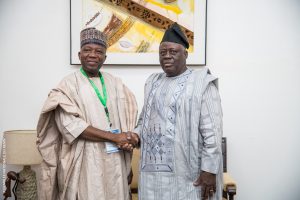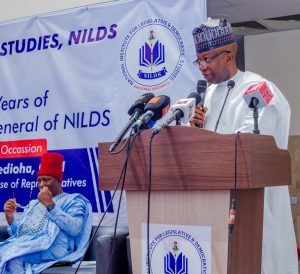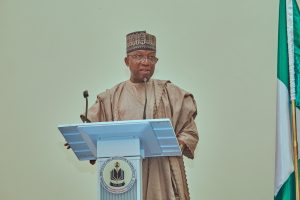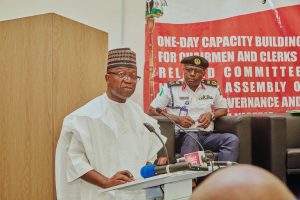The Director-General, National Institute for Legislative and Democratic Studies (NILDS) Prof. Abubakar O Sulaiman has urged West African countries to enact climate change legislation for speedy regional development.
He made the call on Wednesday, 7th September, 2023 at the Africa Climate Summit (ACS) organised by the African Union and the Government of Kenya in Nairobi.
In a paper titled “Perspectives on National Climate Change Legislation in West Africa” he said that the 21st century offers enormous opportunities for inclusive growth and sustainable development for the African continent.
According to him, while there has been varying progress with the attainment of the goals across Africa, climate change poses a serious threat to the continent’s progresses towards attaining SDGs and the ‘Africa We Want’ Agenda 2063.
He said that efforts to address loss and damage, enhance adaptation, and mitigate policies, required West African countries to domesticate the Paris Agreement through passing national climate change legislation.
Prof. Sulaiman explained that such legislation will enable individual countries to act locally and position themselves to access global climate funds as well as meet their National Determined Contributions (NDCs).
The DG decried the low response by African countries to enacting climate change legislation saying that only thee countries had enact the law.
He said that only Nigeria has passed the climate change legislation in West Africa saying that it is vital to ensuring central coordination and prioritisation of climate change actions.
“Although the Global Climate Fund (GCF) offers an opportunity for Africa to finance climate actions across the continent, only three countries have passed climate change legislation, Nigeria in 2021, Uganda in 2021 and Kenya in 2016.
“In West Africa, the challenge is more worrisome, as only Nigeria has passed its climate change act, which establishes the National Council for Climate Change (NCCC).
“Other countries have fragments of legislation and policies that address one aspect of the environment, energy policy, or another.
“Yet, to record tangible progress based on regional climate models, the West African region and indeed Africa must make progress as a bloc,” he said.
He stressed the need to accelerate actions to ensure that West African countries pass their climate change legislation.
He said that the slow pace amongst member countries to achieve tangible progress with local climate change actions have contributed to worsening livelihoods and fueling political instability in the sub-region.
According to him, it is important for West African countries and Africa in general to scale up progress with climate change legislation.
Prof. Sulaiman said that West African countries are in the Sahel part of Africa saying that the sub-region is exposed to the vagaries of climate change.
The DG said that there is need to address the challenge of capacity building that is required to enhance knowledge of climate change science, policy, and actions.
He said that high-level stakeholder engagement that is focused on promoting good governance in the sub-region through democratic practices would also be vital.
He also said that promoting good governance through inclusive policies would be vital to supporting climate action and legislation in the sub-region.
“This event therefore offers stakeholders the opportunity to share their perspectives on how to enhance climate change legislation and implementation in Africa.
“It will also strengthen effective collaboration and synergies between parliamentary networks, technical commissions, and institutions for monitoring and reporting progress with climate change legislation in the sub-region.
“It is my expectation that through the experience sharing that this side event offers, we can all learn from other countries and discuss ways by which parliaments could be strengthened to mainstream climate change through the passage of climate change legislation.
“Unless Africa positions itself for climate change through legislation, the opportunities available to place the subject on the front burner and mitigate its impact on the continent may be lost,” he noted.








